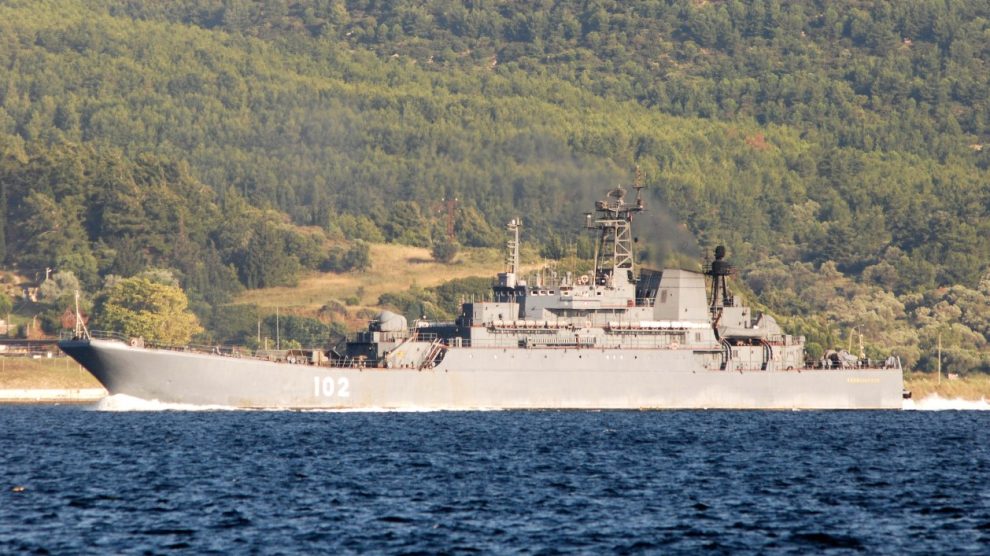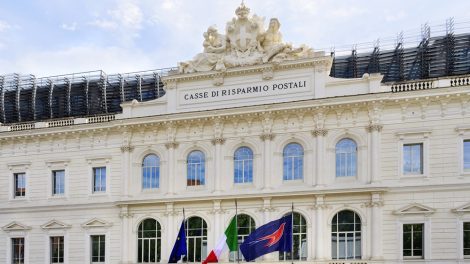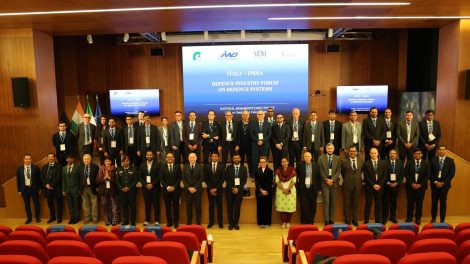Watch out for Russian ships in the Med. That’s the core message from Admiral Enrico Credendino, Chief of Staff of the Italian Navy, who remarked on the security of the Mediterranean Sea and the increasingly assertive presence of Russian warships, which – he said – are displaying a never-seen-before “provocative attitude.”
- “It was normal in the Baltic Sea, but not [in the Mediterranean],” added the admiral, noting that Russian ships today are “very aggressive, with hostile attitudes.”
- This behaviour is cause for concern, he added, as it may cause “an accident between two naval ships from two opposing countries” with unknown, and potentially dire, consequences.
The Med’s hot waters. The region’s “unstable balance” is brought about by several crisis factors, said Admiral Credendino, pointing at irregular immigration, the spectre of terrorism, illicit phenomena and “a great rearmament, in naval terms, of the countries on the Southern shore.”
- “Then there is the Russian fleet, and this is the immediate consequence of the war in Ukraine for our security: the presence of the Russian fleet that was not there. We had up to 18 Russian ships in the Mediterranean, this does not represent a direct threat to our territory, but it certainly increases the tension.”
Intersecting quadrants. This scenario requires “a much greater [Navy] presence than in the past,” said the admiral, recalling that United States naval forces, which “guaranteed stability until 15-20 years ago,” pivoted their attention to the Indo-Pacific under the Obama administration and have been favouring that area in moving their assets.
- Along with other European nations, Italy has also been intensifying its presence in the Indo-Pacific, both through its armed forces – especially the Navy – and political outreach.
- That’s owing to the increasingly-accepted concept of indivisible security, whereby upsetting the balance in one area across the world immediately affects other areas.
- As Japanese Defence Minister Yasukazu Hamada told Decode39, “Security in Europe and the Indo-Pacific are closely related.”
Mind the South. Still, even as the geopolitical centre of balance shifts towards the Indo-Pacific, it’s best not to forget Europe’s – and NATO’s – Southern flank. In his April speech to the Atlantic Council, Admiral Giuseppe Cavo Dragone (Chief of Staff of the Italian Army and Rome’s candidate for the NATO Military Committee) noted the Atlantic Alliance’s “renewed focus” on the area.
- Italy has been actively monitoring Russian warships, which are just one prong of Moscow’s multifaceted and hybrid effort to advance its interest across the enlarged Mediterranean.
- “The hybrid war against the West uses all systems, from grain to energy, from water to immigration,” remarked Enterprise Minister Adolfo Urso earlier this year.





